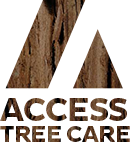
16 Jun Why major pruning should not be carried out in Summer or Autumn
By pruning in the late summer or early autumn you are stimulating new growth that may not harden off before the cold weather. This can then cause problems during the winter. It is best to leave all major pruning jobs until winter.
Summer and autumn pruning offers different benefits to winter pruning:
- Improves the overall look of the tree
- Opens up the tree to increase air flow and allows more light penetration
- Pruning large trees and shrubs that have grown too large or are getting in the way.
- Benefits of Winter Pruning for Fruit Trees
It is easy to get your fruit trees into good shape for next summer, with a few simple winter pruning guidelines. Without pruning in general, you may notice that your fruit trees can become disheveled and less productive.
Cutting back shoots and branches while the trees are dormant, allows for sap to concentrate into fewer buds. This results in strong growth. In the earlier years of a fruit trees life, when you want it to grow strong and develop a sturdy framework of branches, it is vital that you only prune in the dormant season.
Once the tree has reached it’s required shape and size, the majority of pruning can be done in summer. However do note that winter pruning will contribute to the production of fruit next year.
Apple and Pear Trees
Medium to large apple trees highly benefit from having vigorous young shoots pruned, and thinned overcrowding branches during winter. Opening up the centre of the tree will allow a good circulation of air and sun, both vital ingredients for good fruit growth in summer. Pruning freshly planted apple and pear trees (and those up to 4 years old) in winter, allows them to form a good structure and framework of branches.
Always remove dead fruits from around the base of the tree, as these are a breeding ground for fungi. A thick layer of mulching around the base of fruit trees will help protect the roots from the harsh cold weather. The soil around fruit trees is typically covered with broken branches and leaves. This high-carbon mulch is the best. Wood chips, straw and leaves are a great mulch combination and will help protect the trees’ roots during the cold months. In spring the mulch will decompose, and provide the soil with a slightly acidic pH, that is great for fruit tree growth and production.
Beech and Leylandii Hedges
Newer hedges require pruning for the first few years after planting, and typically carried out in winter or spring. After this, they only require maintenance trimming, which is carried out between spring and summer.
For beech hedges, formative pruning means on planting, you should cut back the leading and side shoots by one-third, and cut to a well-placed bud. You should repeat this is the second winter to prevent straggly growth. This will also help thicken up the hedge base.
Leylandii is without a doubt the most popular evergreen hedging plant in the UK, with over 55 million already planted in hedgerows, and a phenomenal 300,000 leylandii sold every year. You ideally want to trim your hedge in spring/ summer. Pruning too late in the season will affect the way new foliage is produced in late summer, which gives the hedge protection in the winter.
Winter Planting
Winter is the optimum time to plant new trees. Always plant Root ball trees immediately after purchase during autumn/ winter. Bare root trees should also be planted immediately, and only during winter. During winter the ground is easier to dig, and trees require minimal maintenance.
The soil takes all summer to warm up, and all winter to cool down. By planting early to mid winter, makes for fairly warm soil conditions. The soil is still cooling down below ground, regardless of the colder temperatures above ground.
This soil allows the trees and shrubs to establish their roots, while also encouraged to grow new roots whilst dormant. By the time early spring approaches, young trees have had the perfect conditions to flourish, and are strong enough for the upcoming warmer weather.




